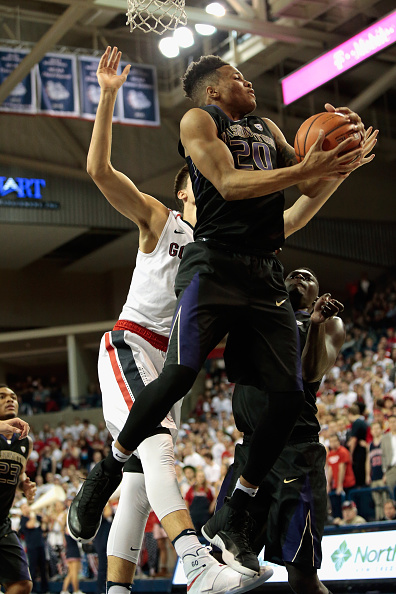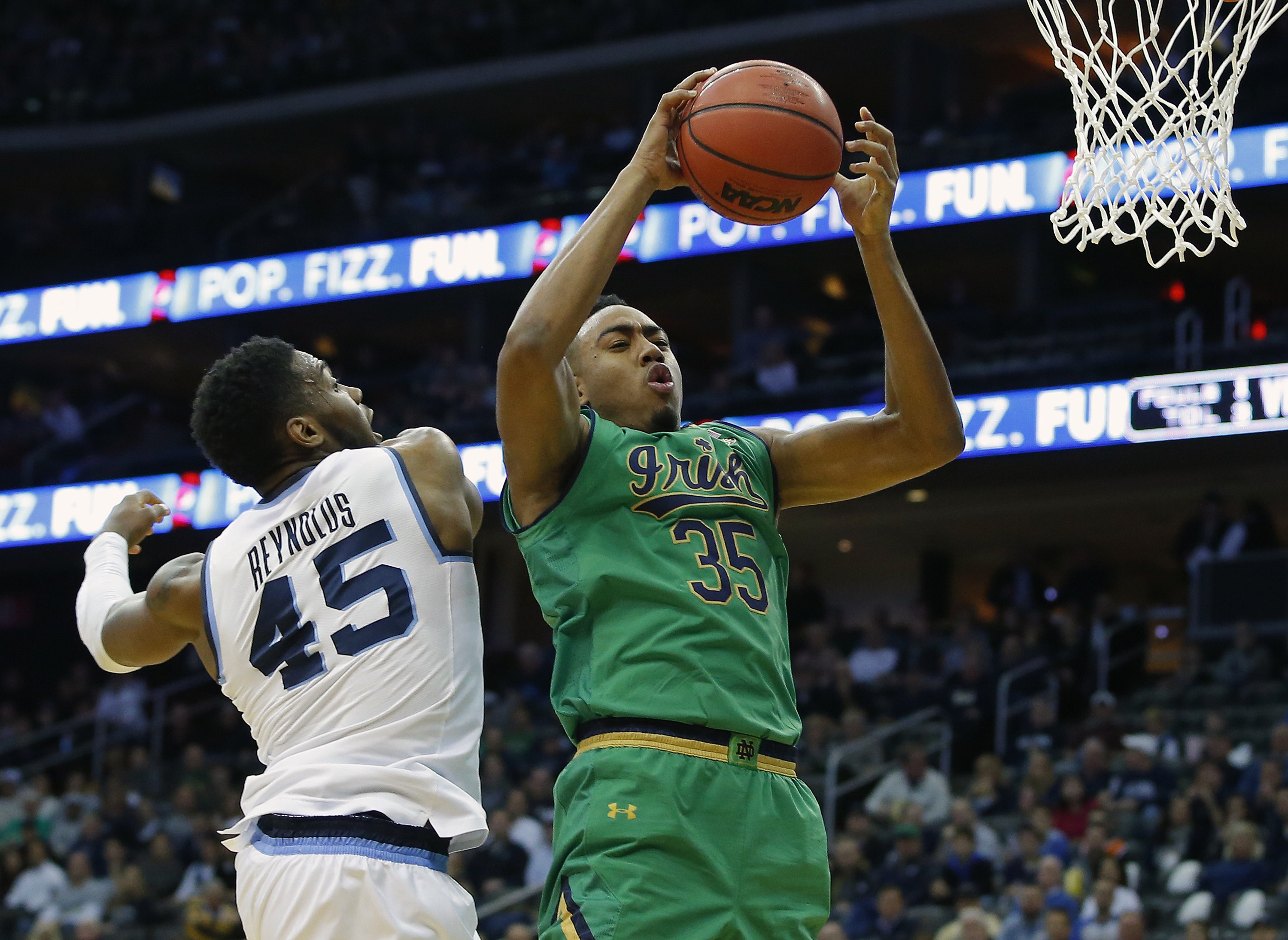My plan for watching college basketball this year was to watch exclusively on my computer and write while I watched games. It worked pretty well during the Final Four the past few seasons, so I thought I could just use that system for the regular season. We decided to cut the cable cord after moving to a new house and I did not notice the loss of cable TV for the most part. However, problems have arisen since college basketball season started.
I started to write an early season live-blog on the Champions Classic, but I ran into a number of problems. First and foremost was the fact that the picture was quite choppy. I am using the local internet company, which is supposed to be faster than the large regional cable provider (Cox). With Cox, the internet was routed straight into my desktop, but the LUS fiber has a wifi router that broadcasts the internet to my house. I don’t think the signal is as strong.
Perhaps the bigger problem is that I had become spoiled by the DVR. While I am somewhat too old to actually be a millennial, I do like to have things on-demand, including sports. I loved being able to watch a full college basketball game in less than an hour. I can’t stand watching ads (particularly when the ads come through clearly and the game does not). All of this is to say that I have not watched that much basketball, so I have not had that much to write about. That ends today.
I am still playing fantasy college basketball in far too many leagues. Frankly, fantasy sports become less fun the more teams that you have. Some teams, usually the ones that aren’t winning, get put on the backburner and it is less fun overall to have to play against some of your own players in different leagues. With just about half the season gone, I decided to look back at the draft in my favorite league, the Big Chief Invitational. By the way, I was once known (mainly to myself) as Big Chief College Basketball. The league uses all six Tier 1 conferences. Teams are comprised of 10 players of which six start each week. The starting lineup is comprised of two guards, two forwards, a center, and utility. One of those players has to be a freshman. Scoring is based on three categories: points, rebounds plus blocks (reblocks), and assists plus steals (assteals). I put the draft into a spreadsheet and sorted by round. Here are the best and worst picks of each round.
Round 1
Best Pick: Markelle Fultz, freshman guard, Washington Huskies (1st pick)

Worst Pick: Marques Bolden, freshman center, Duke Blue Devils (5)
A simple sorting does not provide value rankings, so it may be that a player taken later in the first round would have more value than Fultz. However, if you take the first player, you want the most production. Fultz has provided that and has filled the freshman slot. We’ll have to see how he does against Pac 12 opponents, but he ran through the non-conference schedule with 22 points, 6.2 rebounds, and 6.3 assists. He is the most productive fantasy freshman guard since Kevin Durant (who counted as a swingman since he was so thin). Bolden was a worthy reach, but maybe not in round 1. Productive freshman centers are gold, but the 6-11 Blue Devil opened the season with an injury and has barely played since returning (6.5 minutes per game).
Round 2
Best Pick: Michael Young, forward, Pittsburgh Panthers (17)
Worst Pick: Harry Giles, freshman forward, Duke Blue Devils (3)
The vaunted Duke freshman class has not really helped the team much as of yet. Bolden has been a no show. Jayson Tatum has flashed potential, but has also been injured and played in just six games. Frank Jackson can score. Giles was supposed to be the best of them all, but he is coming off a pair of serious knee injuries. The 6-10 freshman has played in three games and really has done nothing of note. As the freshmen get healthy, I think Duke will turn out to be the best team in the country. Meanwhile, Young leads the ACC in scoring at 22.9 points and has added 7.7 rebounds and 3.3 assists. Young and Jamel Artis are one of the best frontcourts duos in the country and will likely be playing well into March.
Round 3
Best Pick: Frank Mason, guard, Kansas Jayhawks (7) (Sindarius Thornwell, guard, South Carolina Gamecocks, 18)
Worst Pick: Bradley Hayes, center, Georgetown Hoyas (19)
Thornwell was off to a great start before being suspended for an offseason arrest. He played seven games and provided 18.7 points, 6.7 rebounds, and 4.1 assists. By average, he is the most productive third rounder, but he may not be back. Mason has led the Jayhawks to another great start to the season. Kansas once again is the prohibitive favorite to win the Big 12. The senior guard is having his best shooting season and is hitting 48.2% of his 3-pointers. All of his numbers – 19.8 points, 4.6 rebounds, and 5.9 assists – are up from previous seasons. Hayes had some surprising success last year, but he was suspended for four games. He is now on the bench behind Jessie Govan and has not played more than 15 minutes in his last six games.
Round 4
Best Pick: Peter Jok, guard, Iowa Hawkeyes (5)
Worst Pick: Canyon Barry, guard, Florida Gators (6)
Here are two players I was wrong about. Jok figured to have an expanded role with the Hawkeyes, but I did not think the senior would jump from 16 points last year to nearly 22 points. He has also significantly increased his rebounding (6.1) and assists (2.2). I thought someone else might step up into the talent void in Iowa City, but Jok has taken all of the sunshine. I tend to get starry eyed around transfers. Sometimes it works out, but the youngest son of Rick Barry has struggled since transferring from College of Charleston. He scored 19.7 points last year, but is providing just 10.9 points for the Gators. Barry is making just 26.1% of his 3-pointers and played 12 minutes in the SEC opener against Arkansas.
Round 5
Best Pick: Bonzie Colson, forward, Notre Dame Fighting Irish (3) (Tres Tinkle, forward, Oregon State Beavers, 11)

Worst Pick: Tyler Robeson, forward, Syracuse Orange (9)
There are a lot of ACC players represented on these lists. No one really knew that Colson would become an impact rebounder. He has jumped from 6.7 rebounds last year to 10.5. Double-doubles are nice. He is also scoring 16.5 points and providing 1.3 steals and 1.4 blocks for the Irish. Tinkle, the coach’s son, was doing work before he hurt his wrist. In eight games, he provided 20.2 points, 8.3 rebounds, 2.3 assists, and 2.2 steals. What more can you ask for from a Tinkle? He should return relatively soon. Roberson has taken an opposite path from Colson. He snagged 8.5 rebounds last year, but has found playing time hard to find and has snagged just 4.6 boards with 5.8 points in 17.5 minutes. The Orange have been disappointing across the board. They are the worst team in in the ACC RPI and their best win was against Monmouth. Perhaps my last post put some doubt in coach Jim Boeheim’s mind.
Round 6
Best Pick: Jerome Robinson, guard, Boston College Eagles (17)
Worst Pick: Isaac Copeland, forward, formerly of Georgetown Hoyas (2)
Some people have the theory that players make the biggest jump in production from their freshman to sophomore seasons. I think the jump usually comes when a player gets more minutes, but Robinson’s play may be a feather in the frosh-to-soph idea. The 6-5 guard is only playing one more minute per game, but he has improved in every area for the Eagles. He is leading the team with 20.5 points to go with 5.2 rebounds and 3.2 assists. Copeland is the second Hoya to be the worst pick of his round. He opened the season by missing nearly all of his shots, which caused him to lose his place in the rotation. The 6-9 forward subsequently decided to leave Georgetown. You just never know.
Round 7
Best Pick: Stephen Thompson Jr., guard, Oregon State Beavers (16)
Worst Pick: Myles Davis, guard, Xavier Musketeers (18)
Oregon State had the problem of replacing Gary Payton II. While the team has won just four games, they have produced a number of fantasy relevant players. The aforementioned Tinkle was balling before getting hurt. Drew Eubanks has stepped up in Tinkle’s stead. Thompson missed six games with an injury, but has scored at least 11 points in his seven games since returning with a combined 49 points in the first two games of Pac 12 play. Thompson and Eubanks will fall off when Tinkle returns, but the team has a decent nucleus for future success.
Round 8
Best Pick: Luke Kennard, forward, Duke Blue Devils (11)
Worst Pick: Allonzo Trier, guard, Arizona Wildcats (1)
Coach Mike Krzyzewski has an enviable squad. The Blue Devils have all of those freshmen, a steady postman in Amile Jefferson, and Grayson Allen (when he isn’t tripping opponents). Yet, it has been Kennard who has been the Blue Devils’ best player in the first half of the season. He was mainly a bench scorer for Duke as a freshman, but he is the de facto man for this year’s team. Kennard is hitting 43.2% of his 3-pointers and leads the team with 21.4 points. Not bad for an eighth round pick. Like Peter Jok, Kennard has also increased his rebounding and assists (somewhat due to his huge increase in minutes). Trier has yet to suit up for the Wildcats while under indefinite suspension. He is travelling with the team, but has not participated in a game.
Round 9
Best Pick: PJ Dozier, guard, South Carolina Gamecocks (17)
Worst Pick: Udoka Azubuike, freshman center, Kansas Jayhawks (19)
Dozier hits both of the sweet spots. He is a sophomore who struggled as a freshman. His minutes have increased by 8.2 per game and he is putting up numbers for the Gamecocks. Thornwell’s absence has helped the 6-7 wing and he scored at least 20 points in five straight games. Dozier, whose first name is Perry and yet he does not use it, has hit more 3-pointers and could help the Gamecocks to a respectable SEC season. Azubuike was a worthy flyer this late in the draft, even though freshmen don’t always prosper under coach Bill Self. The seven-footer was starting until he was lost for the season with a wrist injury. His 5.0 points and 4.4 rebounds weren’t really fantasy worthy, but he was a five-star recruit.
Round 10
Best Pick: Trevor Thompson, center, Ohio State Buckeyes (3)
Worst Pick: Djery Baptiste, freshman center, Vanderbilt Commodores (19)
Thompson was a backup in his first year with the Buckeyes last season. His 6.5 points and 5.1 rebounds were not outstanding, but he has become a force on the glass. As a starter this season, he is averaging 10.7 points and 9.2 rebounds. He has four double-doubles in his last six games. His owner does not have to worry about finding a center on the waiver wire. Maybe Baptiste will develop into a Thompson-like player. The 6-10 Commodore has not been able to eclipse 18 minutes. A productive freshman center can win a league like the Big Chief Challenge, but Baptiste has become wire fodder with averages of 2.6 points and 2.2 rebounds.
Add The Sports Daily to your Google News Feed!
